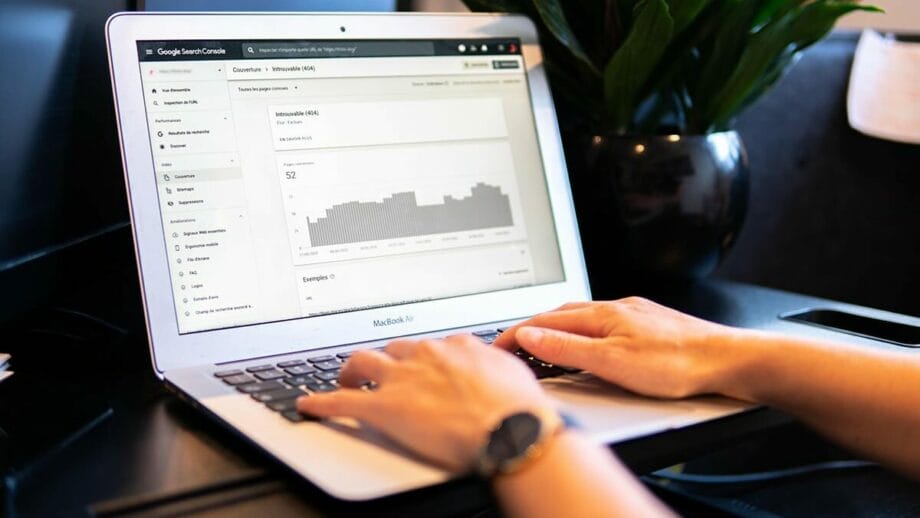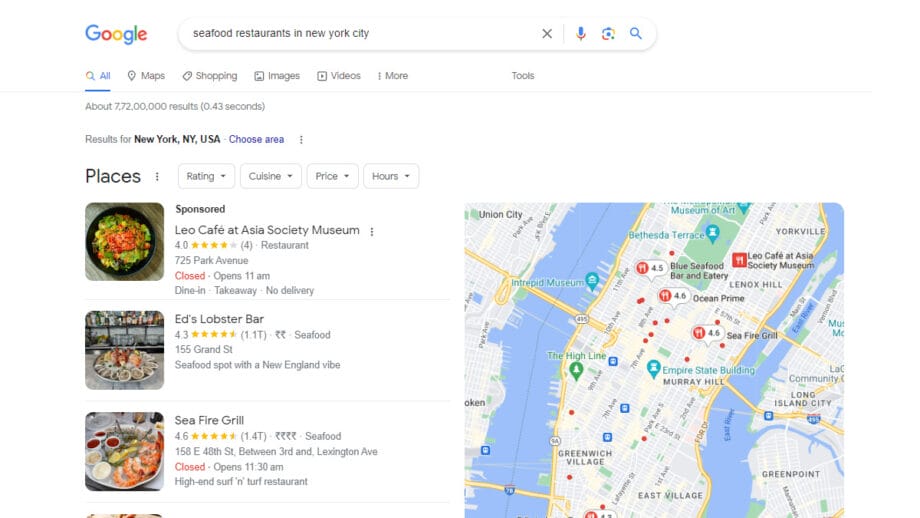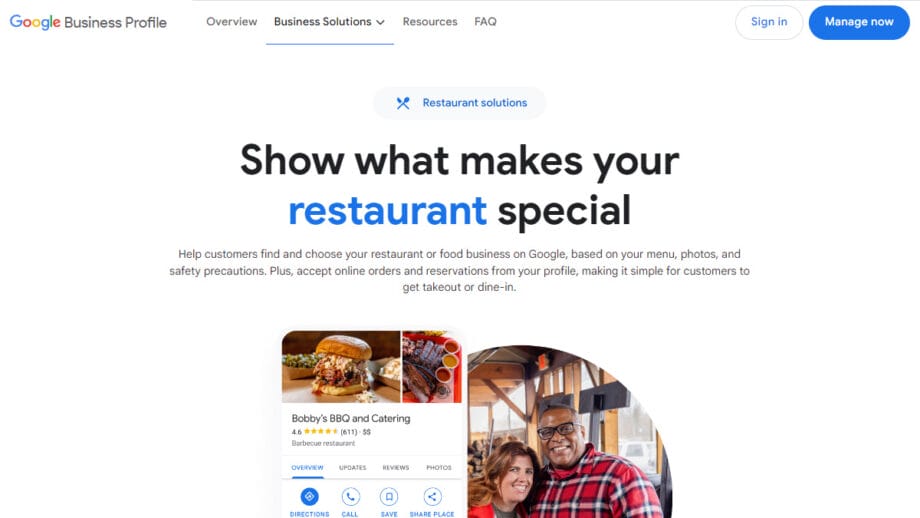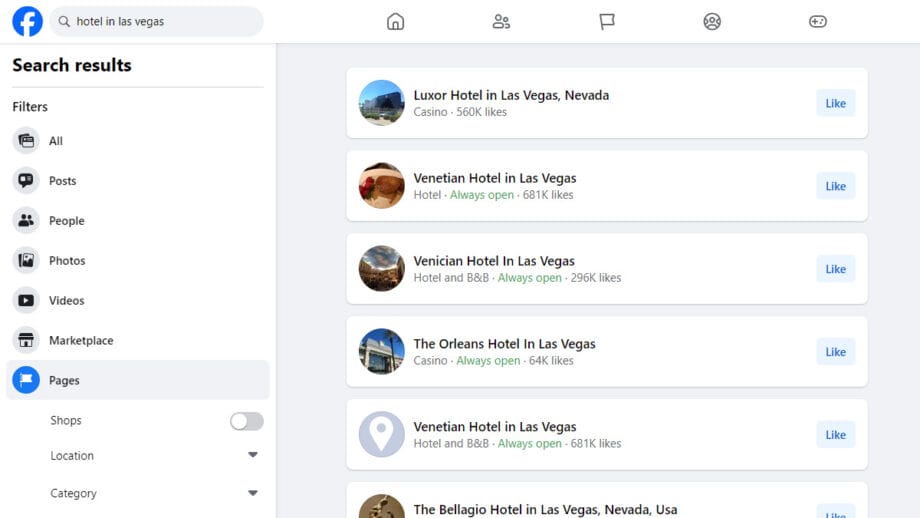Big names have always eaten away the small businesses by dominating the online world. They are highly unlikely to compete effectively and hence attract more customers. Fortunately, the implementation of local SEO has improved sales and generated more customers for many small businesses.
This is achievable because of the availability of local SEO which has made it possible for these types of small-scale businesses to compete favorably with other large-scale businesses dominating in specific regions. An increasing number of people prefer patronizing local businesses because it comes with some amount of convenience and intimacy.
Statistics indicate that more than 21% of the users search for local businesses close to them every day using search engines. Therefore, you are making a very big mistake if you are not using local SEO to boost your web traffic. This makes it possible for you to get close and connect with customers within your immediate vicinity.
In this article, I wish to guide you on what local SEO is and how best it can fit as part of your digital marketing strategies. Read on to find out more about the true potential of local SEO and how you can benefit from it.
What is Local SEO?

Several strategies can help your business get highly ranked on local searches and maps, the first one being the use of Local SEO. Your core audience that is in your area will no longer struggle to find you. That is why, being a local business owner, you should leverage local SEO in your every online promotion campaign.
Local SEO is best suited for small and mid-level businesses. This is local SEO level one. It refers to the process where you optimize your URL, meta tags, content, and backlinks with localized keywords that are relevant for visitors who belong to specific regions in order to gain rankings within local search results.
Related: Revolutionize Your Strategy with AI-Powered Content Marketing.
Why Does it Matter?
The main goal is to increase visibility and attract customers who are already looking for such products or services in your area. One of the local SEO statistics indicates that 46% of all searches on Google seek local information. Through the optimization of your website and online listings for queries, you can create qualified leads using potential customers who are looking at what your company offers at their location.
Nevertheless, promoting your site via local SEO helps to attract not only local citizens but also travelers. For instance, a tourist in New York City would search for the best local seafood restaurant in NYC. All they need to do is type a brief keyword search in Google and bam; they are at your front door.
Significance of Incorporating Local SEO into Digital Marketing Strategies

The necessity to implement local SEO in your marketing strategies should never be overemphasized. It brings a whole lot of advantages for your business, and here are some of those benefits:
Improved Visibility for Local Businesses Online
When doing local SEO, you are primarily concerned with getting your site to be listed on Google’s first-page search results. By optimizing your website and online listings, you will be able to increase your visibility on search engine results pages (SERPs) as well as on the map.
Your intended audience does not just view your website; they can also access the contact details, customer ratings, images, opening and closing hours of your business, and more.
Therefore, when your potential customers search for products or services in your region, they will see yours as the first business on top of their search results. This increases the number of clicks that are directed towards your website, which improves chances for generating leads.
Targeted Traffic and Prospective Customers
Local SEO is a strategy designed for a specific set of keywords and phrases related to your business. It plays a role in making your digital marketing efforts much more targeted to people within your community. This means you will come up with more relevant and useful content that your local niche segment desires.
You can use local SEO to pull customers in by ensuring your website and online listings are optimized with location-specific keywords and content. These visitors are customers more likely to engage and convert through interaction with your business resulting in growing sales and overall expansion.
For instance, if you run a restaurant locally, you can share content about the most delectable foods found in your region. This enhances your use of the keyword and thus ranking positioning of your website in SERPs. In addition, as the website traffic is more targeted, the chances are high for a higher conversion rate as well as greater sales.
Improved Credibility and Trust
When your business ranks among the first ones on a search query, it awakens trust and authority with potential customers.
As a rule of thumb, businesses that feature prominently in search results make money from people’s trust, most especially those on the first page of Google. Statistics state that more than 63% of web researchers perceive the sites on Google’s first page as reliable, popular brands.
Through local SEO investments, you will create an entity that clients can trust and drive customers to your site by leaving out rivals. Thus, your essential focus is always the locally focused content that can be linked by other businesses. Increased backlinks to your websites or content increase credibility and authority.
Enhanced User Experience
Local SEO is not just having your website optimized for search engines; it also involves improving the user experience that customers will get.
With a mobile responsive website, having reduced page loading time and relevant information will give you the ability to provide a better user experience. By doing these, you make it possible to establish a user journey that encourages people who visit your site to stay longer and engage with your content.
A favorable user experience improves conversion rates; that is, visitors are more likely to become customers. It also improves the ranking of your site on search engine results since search engines give priority to sites that offer a good user experience. And the more positive experiences you give your audience, encourage them to leave more positive reviews and five stars. Therefore, you earn trust.
In a bid to randomly conduct research online, it has been documented that 76% of online users use the website for reading reviews in an attempt to search local businesses. A firm that has received 5-star ratings will be chosen and trusted over the one with a rating of 3-star. Local SEO generates traffic that is most likely to convert since it drives people who are looking specifically for your products and services to your website or physical store.
How to Leverage Local SEO in Your Digital Marketing Strategies?

You should use SEO effectively by adopting the right strategies based on your business requirements and objectives. Here are some key strategies to consider:
1. Creating and Optimizing Google My Business Profile
A good GMB (Google My Business) profile is prime in establishing and maximizing your accessibility and online dominance fortifying your SEO effort. GMB is a Google tool for managing your presence across different Google platforms, which may include search results and Google Maps.
No matter what local business or services you operate, be sure to use this tool if you wish Google should always identify your business and assist in attracting more locals.
Note: You will need a Google account in order to use the GMB tool.
You can easily create a GMB profile:
- Visit the official Google My Business website and log in with your Google account.
- Click “Get Started”.
- The next step provided is to input your actual business name and area of operation. Make sure that there are no typos or spelling errors.
- Select your business category.
- Include the phone number of your business as well as its official website.
- OK, verify and confirm your data. Finish!
It is critical to make sure that all data regarding your business within the GMB profile are accurate and up to date in order to make it stand out. This includes filling in more information about your venture that is helpful for users, like your hours of operation and a short description of what the business offers.
Do not be afraid to spend good money on quality photos – this has an immense influence on visitors’ perception of your business.
Also, you can encourage your customers to leave reviews on your GMB profile. Positive feedback really helps a lot to improve search engine visibility while building trustworthiness for your customers.
2. Encouraging Customer Reviews and Managing Online Reputation
Customer reviews – on the other hand – are significant for SEO. They build up your reputation and impact your ranking in search engines.
It’s not wrong to let your customers know about this and request them to leave reviews on several platforms like Google, Yelp, Bing Places as well as all other relevant review sites.
Nonetheless, you should still take care of your online reputation. This implies that despite appearing good or bad, always maintain a professional and friendly approach.
By doing this, you show your customers that their reviews are valued, and offering good customer service is very important to you. Taking into consideration that you may want to establish significantly more trust and credibility towards your entity – reputation management is unavoidable.
See also: 12 Remarketing Strategies to Convert Travel Leads into Bookings.
3. Utilizing Local Keywords and Location-Specific Content
Local SEO simply cannot be applied without local keywords and key phrases. Do you sometimes wonder why when typing a word (e.g., ‘restaurant’) Google pulls out every site with the word “restaurant” in its summary?
That is the value of keywords. However, when you include a particular location in the keyword, google filters its responses to accommodate only results that use those local keywords.
Keywords play an integral role in SEO. It is important to identify keywords that a potential customer in your location most likely use when searching for something.
Since the users want to spend less time finding information and probably get instant answers, they are more likely to use keywords that look like something local.
For instance, in the case of a Chicago-based user with an urgent need for plumbing services, they may not search as “best plumbing in the U.S.” but will probably opt to use more local and specific keywords/key phrases such as “best plumbing services in Chicago” or “best plumbing services near me”.
Therefore, do not forget to enrich the text on your site with these keywords relevant for specific locations including page titles, headings, and body text, while another important place where you can use them is meta descriptions.
If you have many physical stores across multiple locations, all you need to do is create separate web pages for each location. That will ensure that you pull customers for your all stores.
4. Leverage Social Media Local SEO
Your website is not the sole medium to use the local SEO. Social media can also act as a search engine. In reality, according to the statistics on social media marketing, 49% of Gen-Z and 47% of millennials use social media to look for products as well as businesses.
People use social media platforms such as Instagram, Facebook, X (Twitter), and YouTube to interact and find local businesses near them. Your business’s social media profile and content can be locally optimized for SEO purposes.
- Use local keywords: Use regional keywords in your publications on social media, specifically on Twitter.
- Optimize your bio: In your bio, let people know what type of business you do + your business location. For instance, if you run a hotel business in Las Vegas then include “Hotel in Las Vegas” so that whenever someone searches for hotels in Las Vegas, your profile will appear among the top results.
- Use local hashtags: Hashtags are somehow similar to social media keywords. With proper hashtags, it becomes quite easy to get noticed. Therefore, make sure that you use a lot of local hashtags (e.g. #dinerintexas) for people who are within your locality to see them.
- Partner with other local businesses: This allows serving users by offering more tags and mentions to your business, which opens you to a wider audience in your locality.
5. Implementing Structured Data Markup for Local SEO
Data markup, also known as schema markup, allows you to provide search engines with additional information about your website’s content. Schema markup helps you to increase the search engine visibility of your website. In terms of SEO, schema markup can identify information such as your business name, address, phone number, customer testimonials, working hours, and more.
This extra detail could provide your search listings with enough information to make them more informative or interesting for prospective visitors and, therefore, increase the CTR (click-through rate).
6. Be Mobile-friendly
Google, however, has a positive bias towards websites and online stores that are friendly to mobile.
Nearly 88% of customers who carry out smartphones for local searches visit a store or call the business within 24 hours. Additionally, Google is producing more than 94.9% of the US mobile search market. This indicates that the majority of active web visitors might be visiting your website with a mobile device.
Make your website mobile-friendly and easy to navigate. Keep in mind that unfavorable user experience would shape audience perception negatively towards your brand and undermine your authenticity.
Key Metrics to Monitor for Local SEO

It’s important to monitor SEO key metrics to highlight the effectiveness of your local SEO efforts and allow you to make decisions based on valid data. Here are some key metrics to monitor:
Average Page Load Time
You can have incredibly relevant content, high-quality photos, and a well-designed website. However, if your website loads slowly, there is a big problem. A sluggish website can cripple user experience.
The load time of the page is very important for search engine rankings and user experience. Therefore, increase the speed of your website for a better ranking.
Picture a shop that specializes in selling some products of your interest. Hence you pay the website a visit in order to get more information on it or just buy the given product. However, waiting for the site to load is a different story; it took about 5 minutes. Every click forces you to wait several minutes before it comes up on the screen. I am assuming you left in anger and likely never return.
And this is exactly how your customers feel when it comes to slow page-loading on your website. A slow load time on a page can annoy users and lead them to flee from the site prematurely.
In this regard, in order to improve your website’s performance, you should keep track of how fast the pages load. Apply things such as image compression caching and minimize server response time. The SEO practices might also differ between platforms. For example, WordPress SEO practices and content optimization approaches may slightly vary compared to other widely used hosts and platforms. If in doubt, one may consider engaging a specialist.
Backlinks
One of the commandments that dictate search engine ranking factors includes incoming links from other websites – which are commonly called backlinks. It’s important to monitor the numbers and relevance of backlinks pointing to your website.
You can receive links to your site from more local businesses or even the websites of local newspapers. By receiving backlinks from the authority sites, you prove to Google that you are authentic. In turn, Google rewards you by placing your business higher in rankings and displaying it to a wider number of people.
Build relationships with websites in your niche or geographical area to improve the general quality and relevance of backlinks directed toward your website.
Backlink Toxicity Score
Not all backlinks are beneficial for your website. Toxic backlinks are links that come from spammy or low-quality websites. They can damage your ranking on search engines.
Keep track of backlink toxicity score and disavow harmful or low-quality links from spammy domains to save your website’s reputation, as well as improve rankings.
Bounce Rate
The bounce rate is the percentage of visitors that have left your website after viewing only a single page. High bounce rates may also mean that the user is not happy while using a site or users are brought to irrelevant content.
Measure the bounce rate of your website and further analyze those pages that are having high bounces to identify areas for improvement.
Brand Awareness via Related Search
Track the number of searches happening for your brand or business name. An increase in brand-related searches shows that people’s awareness of your brands is growing. This points out that marketing efforts on local SEO are working.
CPC (Cost Per Click)
If you are running paid ad campaigns, keep an eye on your CPC to evaluate the performance of these campaigns and get the max out of them to better distribute your budget funds.
A lower CPC rate means more effective targeting of ads and a better return on investment (ROI).
How to Measure Local SEO Success?

To be able to determine the success of all your local SEO efforts, you need a complete analysis that touches on various aspects. Here are some key areas to review:
Review Overall Traffic Numbers
Traffic is essentially the amount of people who visit a website. In most cases, high-ranking websites attract more traffic during searches.
However, organic traffic is also important because it proves the efficiency of your local SEO campaign. It also helps you to learn the type of content that your audience prefers. Knowing this, you can produce content that suits their desires and as a result more sales or leads for your business.
It is possible to evaluate the number of people who access various pages on your website and then compare how each page ranks with that keyword when pitted against competitors. This would help in understanding what page needs improvement.
Review Conversions & Profit
The endpoint of every action is a result – whether positive or negative – so also, is the end point of your implemented strategies.
However, we should measure the success of your SEO campaigns based on how many conversions you have been able to make and related profitability. Monitor your numbers of conversions, track the source of getting them, and calculate return on investment (ROI) on SEO campaigns.
Compare New vs. Returning Visitors
Distinguish between new and returning visitors in order to determine how well the local SEO activities are bringing in new customers while at the same time retaining older ones. The right combination of new and returning visitors will illustrate a good local SEO strategy.
Review Your Referral Traffic
Monitor all incoming traffic on your website, as well as assess the performance of backlinks, local directories, and social media profiles. Identify the conduits that drive traffic and optimize your strategies accordingly to maximize results.
Related: Using Tech to Improve Your Marketing Strategy: Tips, Tricks, and Tools.
Conclusion

Digital marketing cannot be successful without local SEO; small companies have to know the proper strategies. Having good local SEO strategies will also ensure that your online visibility is increasing, you are captivating your targeted audience, and you are gaining credibility as well as making the overall user experience better.
Local SEO is not a one-time process as it needs an ongoing effort to be put into monitoring, tweaking, and optimizing. Finally, make sure the local SEO strategy you adopt is sufficient and modern in line with the current digital age.







